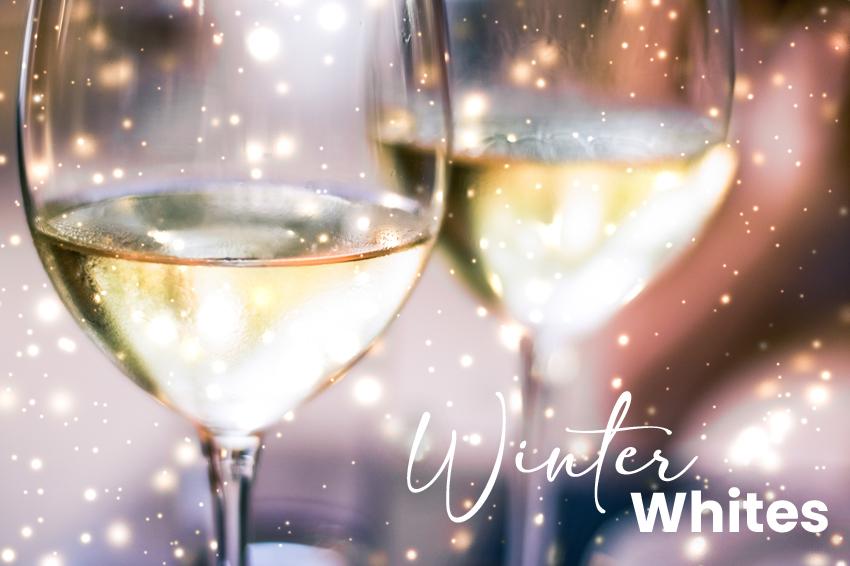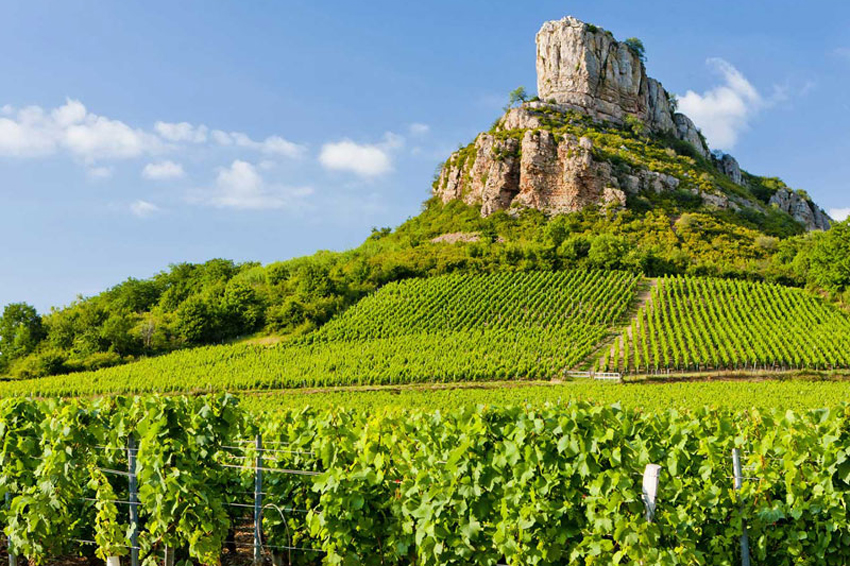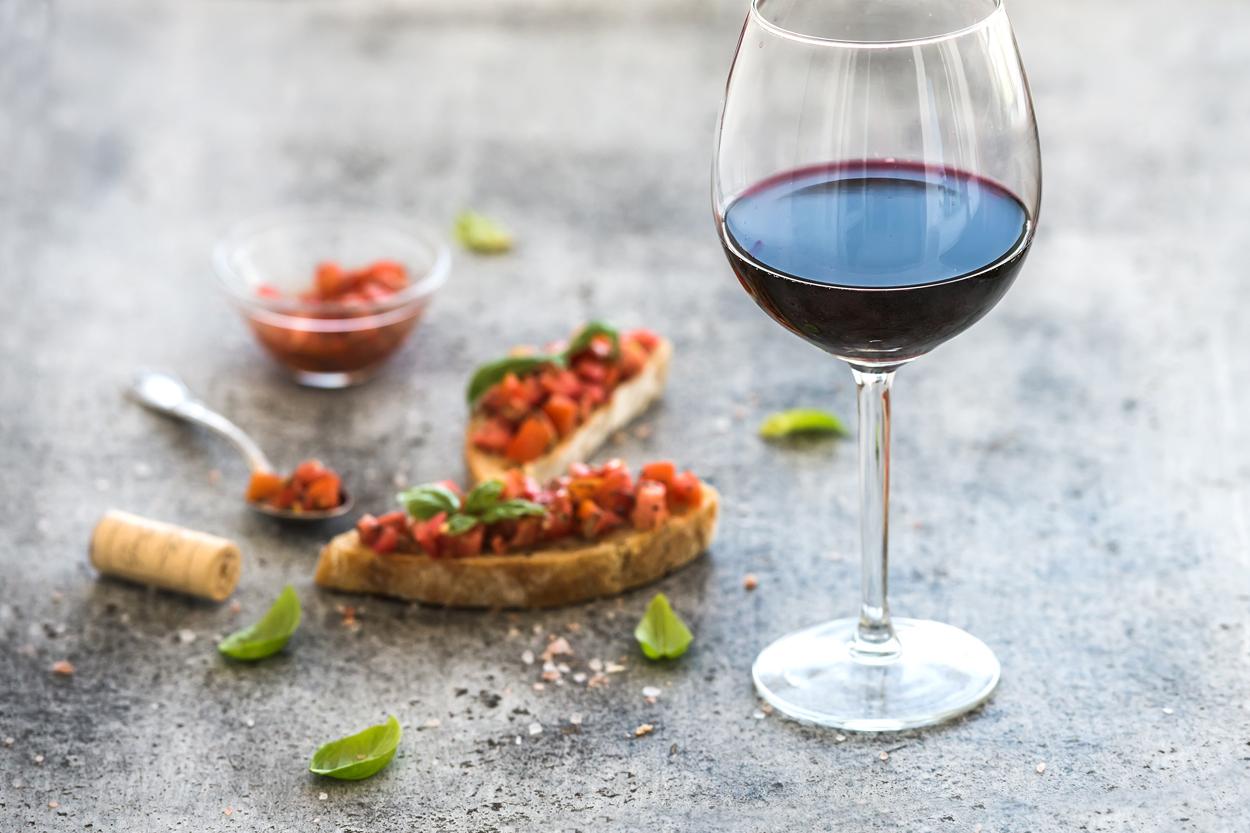Riesling, pronounced ‘Ree-Sling’, is a wonderful aromatic white grape variety that is held in extremely high esteem by wine lovers. The grape originated in the Rhine region of Germany and continues to be Germany’s signature white grape. It is produced in a range of styles depending on the natural ripeness of the grape. Riesling is never blended with other grape varieties and it is rarely fermented or matured in oak, this ensures that the purity of fruit is preserved.
What are the characteristics of Riesling?
Riesling expresses fruity and floral characters with high acidity wherever grown, however, different soil types, different ripeness levels and aging emphasise certain aspects of the flavour. The variety grows best in a cool climate with plenty of sunshine in order to achieve high acidity levels and intense fruit character, which is why it does particularly well in Germany and Alsace where it enjoys a long ripening period allowing the slow build-up of sugars whilst retaining that acidity. Here the grape exhibits green apple, blossom and citrus notes. The sweeter styles display white flowers, mango and apricot character. In more moderate regions such as Marlborough in New Zealand and Eden Valley or Clare Valley in Australia you get more lime and stone fruit characters.
The characteristic high acidity levels and the intensity of flavour helps many Rieslings to age in the bottles where they often develop notes of honey, toast and even petroleum.
Is Riesling sweet or dry?
The short answer is yes! Riesling can be produced across the whole sweetness spectrum from intensely sweet to bone dry. Some Rieslings are helpfully labelled ‘Dry Riesling’ or ‘Troken’ (meaning dry in German), to avoid confusion. Another clue to which style is in your bottle is the abv% on the label. The sweeter the style, the lower the abv. Most German Rieslings range between 7.5%-9.5%abv and they will contain some residual sugar making them taste sweeter. Examples from Alsace in France and the new world will range from 11.5-12.5% abv and they will taste dry and will not contain much residual sugar (the sugars will have been converted to alcohol during the fermentation process).
Some Rieslings from both the old and new world can also intensely sweet due to processes which further concentrate the sugars inside the grapes before they are picked (i.e. Late harvest, Botrytis or freezing the grapes on the vine)
Which foods pair best with Riesling?
Off -dry or sweeter styles pair very well with spicy, aromatic or fragrant dishes including Thai, Indian and Chinese cuisines. They also match nicely with smoked fish pate.
Drier styles pair brilliantly with oily or fatty meats like duck or goose and even bacon. You can also pair them with fish in creamy sauces or summer salads.
The intensely sweet versions are best served with desserts but not overly sweet and sticky desserts as these will overpower the delicate flavours in the wine.


Top 6 Rieslings To Try


Villa Wolf Dry Riesling, Pfalz, Germany
Attractive nose of ripe lemon and crunchy green apple with a hint of chamomile. Vibrant and energetic on the palate with racy, fresh acidity that provides drive and focus, flowing through onto a core of further ripe, forward citrus and green fruits with added white pepper on the long finish.
BUY NOW


Dr Loosen Urziger Wurzgarten Riesling Auslese, Mosel-Saar-Ruwer, Germany
Dr Loosen is one of the Mosel's great producers. Owned and run by the enigmatic Ernst "Uncle Ernie" Loosen, the estate crafts some of the world’s best Rieslings from the most spectacular vineyards, including this Auslese from Urziger Wurzgarten (spice garden of Urzig) that is intense and ripe with racy acidity, spicy undertones and balanced natural residual sugar as half the grapes are affected by botrytis.
BUY NOW


Robert Oatley Riesling, Western Australia
The Great Southern region of Western Australia is an up-and-coming producer of classic Australian dry Riesling. This classy, crisp wine is made from grapes cultivated on a range of prime vineyard sites. Full of citrus and fresh racy acidity, the Robert Oatley Signature Series is a perfect introduction to Riesling with an Aussie flavour.
BUY NOW


Joseph Cattin Riesling, Alsace, France
Gold in colour, complex nose and rich underlying aromas of mature fruit with floral and citrus notes. Invigorating style, great structure with a hint of smokiness.
BUY NOW


Esk Valley Riesling, Marlborough, New Zealand
Produced from Marlborough grown grapes and bursting with aromatic lime, exotic fruit and clean, zesty acidity. This New Zealand example is an excellent benchmark for the variety, and this wine is a great place to start your Kiwi Riesling journey.
BUY NOW


Dr Loosen Eiswein Riesling, Mosel-Saar-Ruwer, Germany (20cl bottle)
The holy grail for Riesling lovers! Authentic Mosel Eiswein is extremely tricky and expensive to create. Grapes are frozen while still on the vine - freezing the water in the grapes but not the sugars, allowing tiny quantities of highly sweetened grape juice to be extracted. The resulting wine is typically sweet, with a burst of dense, rich flavour and a clean line of reviving acidity.
BUY NOW
As you can see Riesling is a multi-faceted variety and it really expresses the region or ‘terroir’ where it has been grown. I have merely scratched the surface in this blog. For more information or recommendations, please give us a call, we would love to hear from you.







